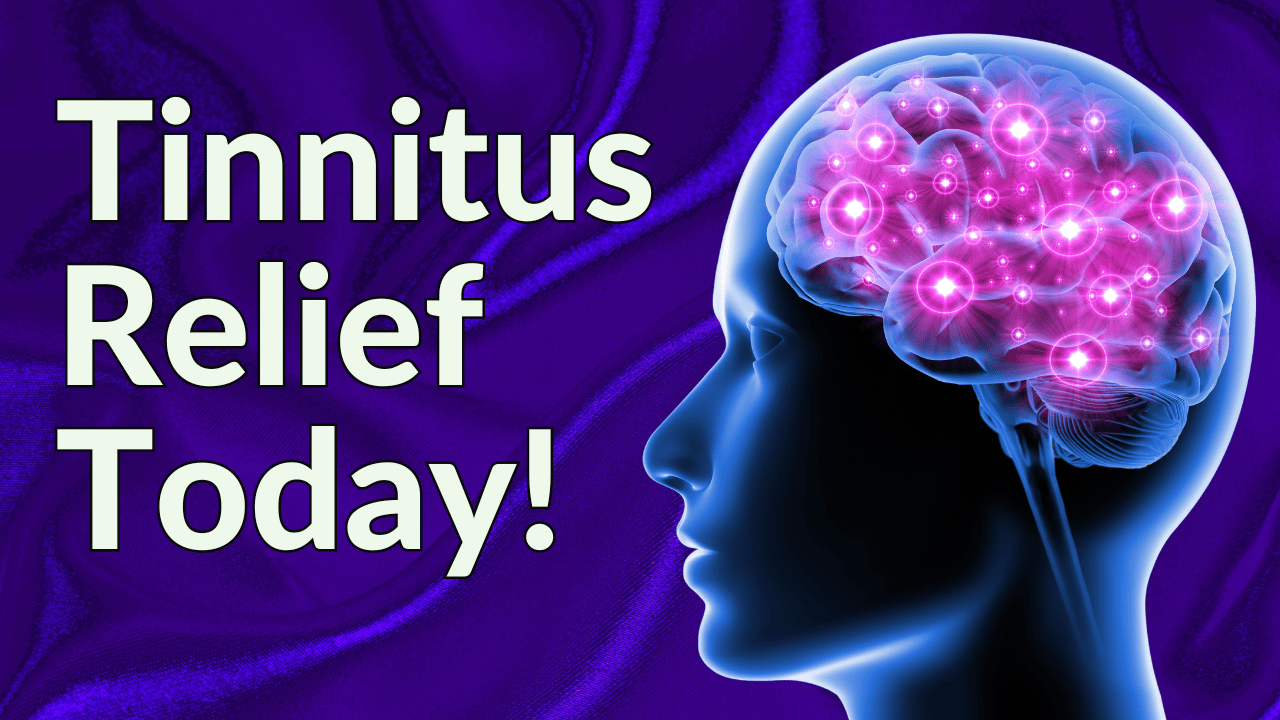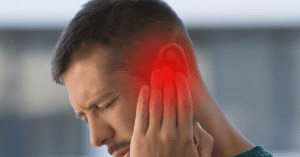Managing allergies and the symptoms that accompany them can be difficult, and many people turn to antihistamines for help. However, for some people, the side effects of antihistamine medications can occasionally include the onset of tinnitus or worsening of tinnitus symptoms.
Others claim that some types of antihistamines can actually relieve chronic tinnitus symptoms as well as allergies. So do antihistamines worsen tinnitus or relieve tinnitus?
There definitely seems to be a link between antihistamines and tinnitus. In this article, we explain what antihistamines are, how they work, and how they’re related to tinnitus.
What Are Antihistamines?


Antihistamines are a type of medicine that is most commonly used in the treatment of allergies. They can also be prescribed for coughs and colds (which can lead to Eustachian Tube Dysfunction), motion sickness, insomnia, Parkinson’s disease, and occasionally for patients who need blood transfusions.
"Treble Health helped me reduce my tinnitus by about 80%, and now I can live my life again!"



"Treble Health helped me reduce my tinnitus by about 80%, and now I can live my life again!"
– Steve D.
Book a free consultation to learn which Treble Health solution is right for you. Join Steve and thousands more who have found lasting tinnitus relief.
For some people, the release of histamines (chemicals your immune system makes) can cause fevers or allergic responses like itching, sneezing, nasal drip, and watering eyes. Antihistamines prevent allergic and inflammatory reactions by blocking the action of histamines in your body.
Antihistamine preparations are available both over-the-counter (OTC) and with a doctor’s prescription. However, they should never be administered to anyone who is under four years old, as they have the potential to be life-threatening to infants and toddlers. Some types of antihistamines can also cause adverse reactions in older children, adults, and pregnant women, so always consult a doctor before taking any OTC drugs to avoid experiencing any negative side effects.
How Do Antihistamines Work?
Histamine is a chemical that your immune system releases in response to injuries. It makes the blood vessels expand and also causes skin swelling, which helps protect the body so it can heal. However, in some people, it causes allergic and inflammatory reactions – their bodies mistake something harmless, like pollen, as a threat and start producing histamines.



This triggers allergy symptoms such as fever, itching, sneezing, a runny nose, and watery eyes. For some, the histamine response can even constrict the bronchial tubes (the air passages of the lungs) and make breathing difficult.
An antihistamine works to block these physiological effects by stopping the release of histamines to minimize allergic reaction to triggers like pollen, pet dander, mold, or dust. It can prevent allergy symptoms like congestion, as well as inflammatory responses like swollen bronchial tubes.
What Are The Possible Side Effects Of Antihistamine Medications?
Every drug has its possible side effects, and antihistamines are no exception. In fact, some types of antihistamines are prescribed as a sleep aid because they often cause drowsiness.
Antihistamine medications can have a broad range of side effects that vary depending on the specific type of histamine blocker. In some people, they can cause headaches or nausea, and in others they can cause otolaryngologic (ear, nose, and throat) conditions like tinnitus.
Potential Side Effects Of Antihistamines Include:



- Blurry vision
- Difficulty urinating
- Dizziness
- Drowsiness
- Dry mouth
- Headaches
- Nausea
- Otolaryngologic effects, such as tinnitus
What Conditions Can Antihistamines Treat?
Besides allergies, antihistamines can be prescribed for many other conditions. They can provide effective treatment for insomnia, motion sickness, and even Parkinson’s disease. Here are some of the most common reasons that doctors prescribe antihistamines:
- Antihistamines can prevent dizziness, motion sickness, nausea, and vomiting.
- The syrup form of diphenhydramine can relieve coughs from the common cold or from hayfever.
- Diphenhydramine, can help decrease stiffness and tremors in people who have Parkinson’s disease.
- Several types of antihistamines that cause drowsiness can be used to help induce sleep and relieve insomnia.
- Other types of antihistamines can be prescribed to treat upper gastrointestinal conditions (like acid reflux) that are caused by excessive stomach acid.
- When used for treatment of allergic rhinitis or cough and cold symptoms, many people utilize allergy medications to reduce symptoms such as runny nose, cough and sneezing. Many of these upper respiratory symptoms can also affect the sinuses and Eustachian tubes as well. Which can lead to cases of blocked ears, reduced hearing, onset of tinnitus symptoms related to Eustachian Tube Dysfunction.
- In this case, use of antihistamines to relieve pressure on the sinus tissues and Eustachian tubes would help to allow for proper middle ear function and would most likely alleviate tinnitus symptoms and any potential hearing loss caused by this condition related to the middle ear.
Types Of Antihistamines
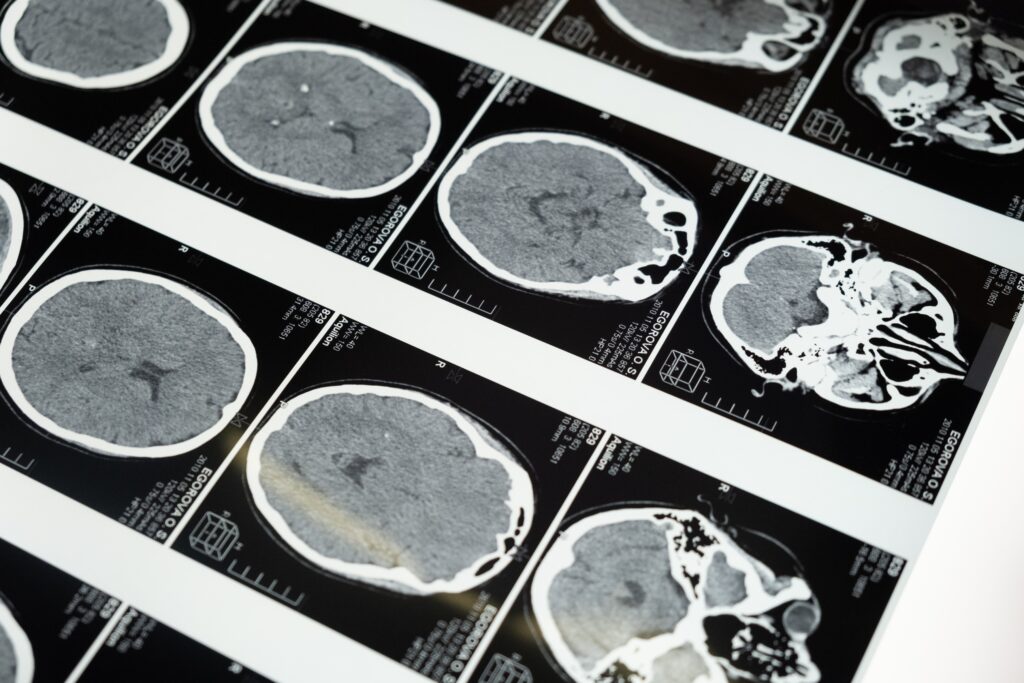

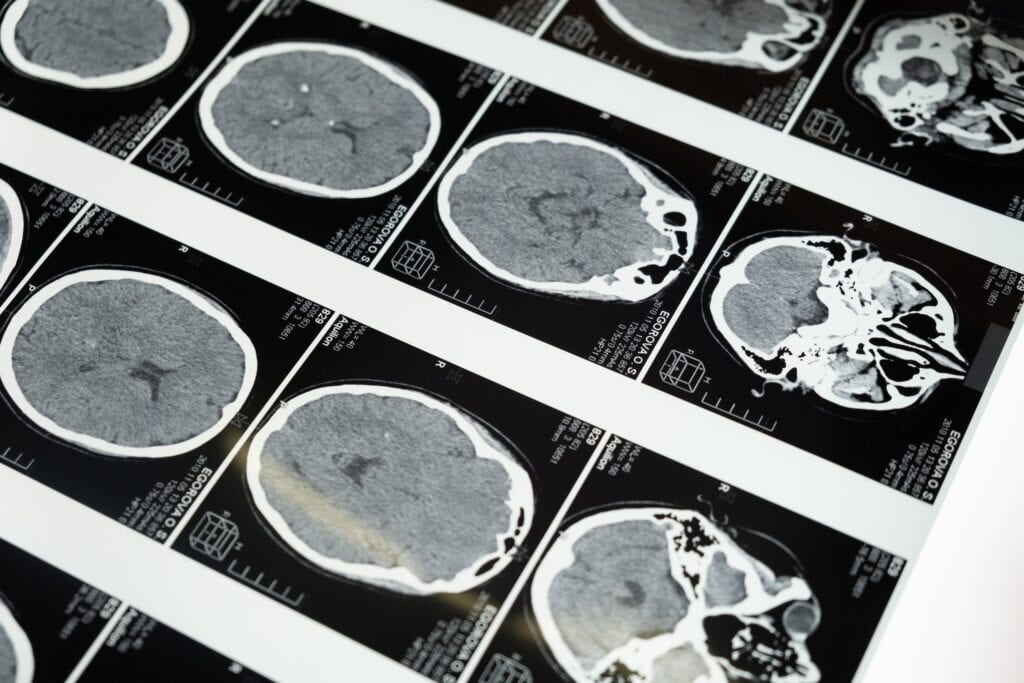
There are two main classes of histamine receptors. Quite simply, they are called H-1 receptors and H-2 receptors.
The first-generation subtypes of H-1 receptors have a central effect, and can be used as sedatives. The second generation of subtypes have fewer central effects, so they are generally used in allergy medications.
Antihistamine drugs that bind to H-1 receptors are the ones that are most often used to treat allergies and allergic rhinitis (inflammation of the nasal passages). However, these are also the most likely type of antihistamines to cause tinnitus.
H-1 receptor antihistamines have anticholinergic properties, which can have adverse neurological effects. They might make some people feel dizzy, and can cause or worsen tinnitus in others.
This documented response (attributed to the way that antihistamines block muscarinic receptors) can also cause:
- Dizziness
- Double vision
- Dry or dilated eyes
- Dry mouth
- Elevated heart rate
- Fatigue
- Incoordination
- Tinnitus
- Urinary retention
Drugs that bind to H-2 receptors are the type that can treat acid reflux and similar gastrointestinal conditions. Unlike H-1 receptor antihistamines, H-2 receptors do not usually cause drowsiness or any other negative side effects. The only exception is cimetidine, which can lead to drug toxicity or have adverse reactions with other medications.
Chlorpheniramine and Tinnitus
Chlorpheniramine is a first generation, H-1 blocking oral antihistamine of the alkylamine class. It is used to relieve cold and allergy symptoms such as runny nose, sneezing, and itchy or watery eyes. But even though it is an effective allergy medication, chlorpheniramine can easily cross the blood-brain barrier and cause side effects.
In some people, the side effects of chlorpheniramine can potentially:
- Impair hearing
- Affect the auditory system
- Cause balance disorders (labyrinthitis)
- Cause tinnitus (ringing in the ears)
- Trigger vertigo
Along with chlorpheniramine, other H-1 antihistamines (like cyproheptadine, doxylamine, hydroxyzine, diphenhydramine, meclizine, and promethazine) can also produce adverse effects in the central nervous system.
The chances of side effects on the nervous system increase along with the amount of antihistamine taken. Adverse effects like tinnitus (which is caused by neural hyperactivity) are more likely to accompany large doses of H-1 blockers.
How Antihistamines Affect The Ears
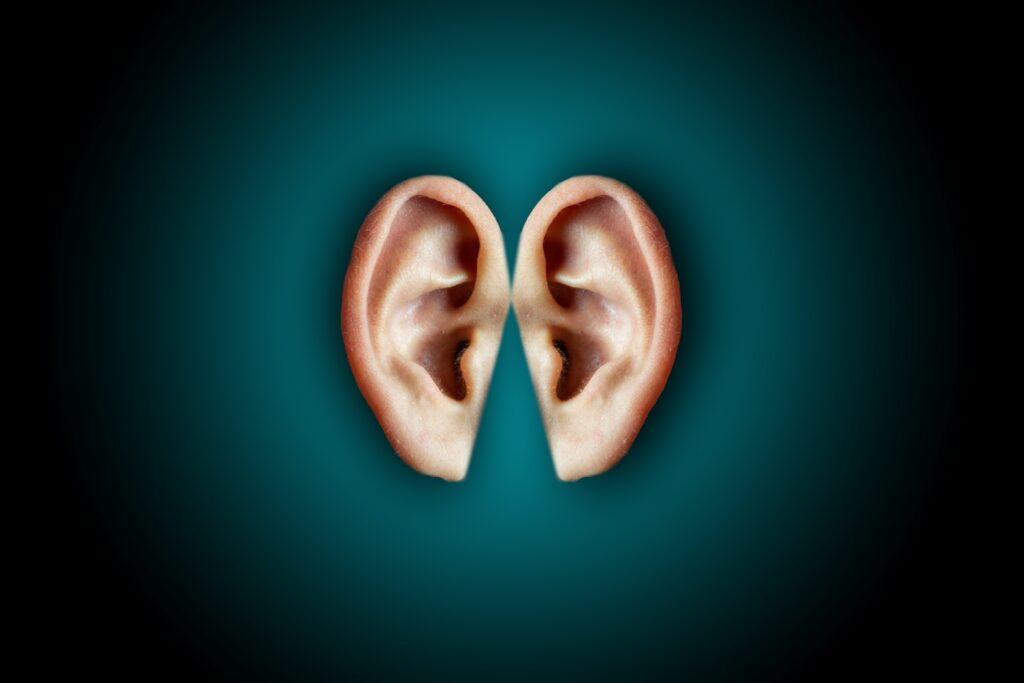

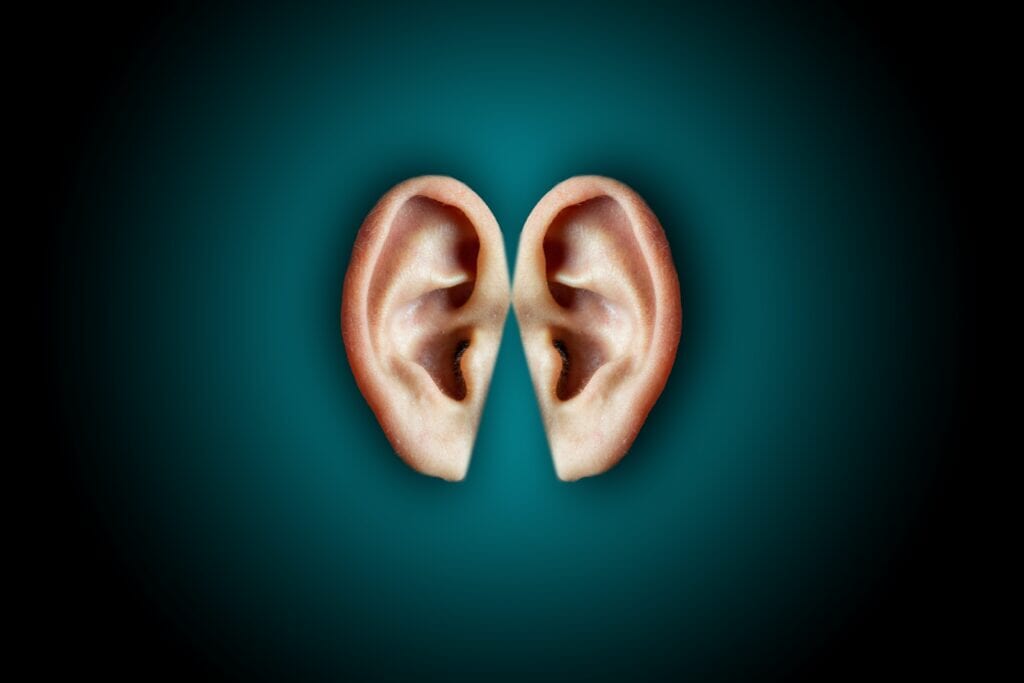
Some types of antihistamines can cause ototoxicity, and this adverse reaction to the drug may affect the inner ear or the auditory nerves. A nationwide study in 2021 indicated that people who were prescribed medications with cimetidine, hydroxyzine, and sucralfate were more likely to develop hearing loss. Ototoxicity causes damage to the inner ear structures called hair cells and typically results in sensorineural hearing loss, meaning that the damage to the inner ear is permanent and cannot be reversed.
Tinnitus is a well known symptom of hearing loss. Although further studies are needed to completely understand the causes of hearing loss related to these three drugs, it is best to use caution when taking them.
If you start experiencing tinnitus symptoms after taking one of the antihistamine medications listed above, you should consult your doctor about changing your prescription. Tinnitus symptoms can vary widely among tinnitus sufferers and although there is not a known way to cure tinnitus, there are a few evidence based treatments that are very effective at reducing tinnitus symptoms and severity such as Tinnitus Retraining therapy.
Can Some Antihistamines Treat Tinnitus?
If your tinnitus is caused by your allergy symptoms, then taking the right antihistamine may actually relieve tinnitus symptoms. Antihistamines can help to treat allergy-related tinnitus either by keeping the middle ear ventilated or by reducing pressure on the inner ear.
Because some antihistamines have a drying effect that helps drain the eustachian tubes, they can reduce the buildup of fluids in the middle ear. They can also help dry out your sinuses, relieving ear pressure from allergies, and reducing tinnitus symptoms. This is the case for those who have Eustachian tube dysfunction, once the middle ear can function properly and allow for proper sound transmission, tinnitus symptoms can improve significantly.
Off-Label Medications
The term “off-label” refers to a medication that is used for a different purpose than the one it was approved for by the Food and Drug Administration (FDA).
A wide array of off-label drugs have reportedly been used for tinnitus relief. Everything from antihistamines to antidepressants, calcium blockers, muscle relaxants, and vitamins can supposedly have an effect on tinnitus.
However, there is very little scientific proof that any of these medications can provide significant tinnitus relief. The only cases where antihistamines relieve tinnitus are ones where the tinnitus was caused by allergy symptoms.
In Conclusion: Antihistamines Can Potentially Cause or Reduce Tinnitus Symptoms



- The effects of antihistamines vary from person to person. They also depend on the type of antihistamine and the reason why it is being taken.
- Some types of antihistamines can cause tinnitus and lead to hearing loss or other ear-related symptoms.
- More research is needed to understand the link between antihistamines and tinnitus.
- Antihistamines can help reduce tinnitus if the tinnitus is caused by allergy symptoms.
- If you develop tinnitus symptoms and are taking antihistamines, it is important to consult a doctor. They can advise you on the possible side effects and prescribe a different type of drug or a lower dose if the medication is causing your tinnitus.
Treble Health’s Approach To Tinnitus Relief
At Treble Health, we are deeply familiar with the complexities surrounding tinnitus, particularly when considering the role of antihistamines. Our team, composed of top-tier audiologists, brings years of expertise in navigating the nuances of tinnitus treatment and management. We’re dedicated to helping you understand how antihistamines can influence your condition and to finding the most effective strategies for your unique situation.
If you are experiencing tinnitus related to allergies, we encourage you to schedule a complimentary telehealth consultation with our team. This 20-minute telehealth consultation is done via Zoom, and during the consultation, our specialists will delve into the specifics of your case. We will explore how antihistamines may be affecting your tinnitus, answer your questions, and provide personalized guidance on managing your symptoms. Our goal at Treble Health is not just to treat tinnitus, but to enhance your overall quality of life – helping you achieve a state of peace and balance. Book your free consultation today to begin your journey towards a life with more clarity and less tinnitus interference.
Next Step: Book Free Consultation
- 75% of patients reduced their tinnitus within three months after following our recommendations.
- "I feel like Treble Health literally gave me my life back." - Randy S. (verified customer)
- Join thousands of people who have reduced their tinnitus after scheduling a free consultation.








